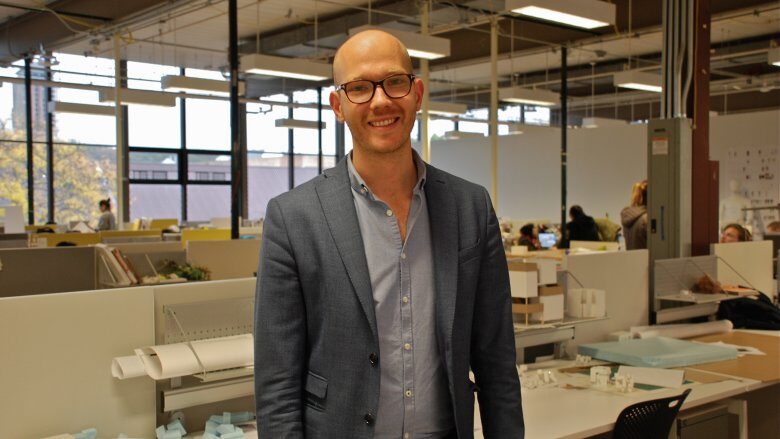A new University of Michigan and Harvard University study shows an 11% drop in homicides and serious injuries caused by firearms in the areas where more than a few demolitions took place. The study does not find that such incidents went up in nearby neighborhoods.
-
August 19, 2019
U-M offers Fall ’19 courses with a Detroit spin on social innovation, car culture and more
Interested in urban issues? Here’s a list of courses offered at the University of Michigan this fall through the College of Literature, Sciences and the Arts, the Law School, the Ford School of Public Policy, the School for Environment and Sustainability, the Ross School of Business, and the Taubman College of Architecture and Urban Planning.
-
August 15, 2019
New office space, new banners for U-M Detroit Center
The University of Michigan Detroit Center has relocated within the Orchestra Place Building on Woodward Ave. The Block M now graces Woodward at the corner of Parsons in Detroit.
-
August 9, 2019
City Bird owners, U-M grads represent the seventh generation of Linn family in Detroit
“We’re lifelong, seventh-generation Detroiters. We came to retail from an unexpected direction, as a way to combine our seemingly disparate backgrounds in urban planning and fine art, our mutual love for design, and our desire to contribute to the vitality of our city and neighborhood,” said Andy Linn.
-
July 25, 2019
Future physicians: U-M program provides hands-on training to Detroit high school students
As a student at Cass Technical High School in Detroit, Rico Ozuna-Harrison discovered how he could have a future in medicine. Every month, students from Cass Tech visit the University of Michigan to be mentored by medical students.
-
July 25, 2019
U-M study reveals hot spots of environmental injustice across Michigan
A new study by a University of Michigan student team has identified “hot spots” of environmental injustice across the state. U.S. census tracts in Detroit, Grand Rapids, Flint, Saginaw, Lansing and Kalamazoo are among the hot spots identified in the study, which was released today.
-
July 22, 2019
Q&A: Joshua Akers maps bulk housing speculation in Detroit
Joshua Akers first arrived in Michigan in 2010 to work on his dissertation about the housing crisis. He stayed to help shed light on how speculators were affecting Detroit neighborhoods with bulk buying. With the help of students at the University of Michigan-Dearborn, where Akers is an assistant professor of geography and urban & regional studies he created Property Praxis, a collective exercise illustrating the impact of speculation on cities.
-
July 15, 2019
State’s top universities partner with Detroit to provide economic forecasting specific to the city
The state’s top three public research universities will collaborate to provide Detroit-specific economic data analysis and forecasting services to the city of Detroit. The partnership will be led by the Research Seminar in Quantitative Economics at U-M, but the work will be collaborative.
-
June 28, 2019
Lars Bjorn: A pioneering researcher, expert on Detroit’s jazz scene
UM-Dearborn professor emeritus Lars Bjorn is still an integral part of Detroit’s jazz scene today. As the president of the Southeast Michigan Jazz Association for over a dozen years, he continues to support and encourage jazz musicians throughout the state. “The jazz scene in Detroit is getting better. It has been up and down, primarily with the fortunes of the city, but it is coming back,” he says. “It’s still a vital jazz scene.” To see jazz in Detroit, Bjorn suggests the historic Cliff Bell’s jazz club.


